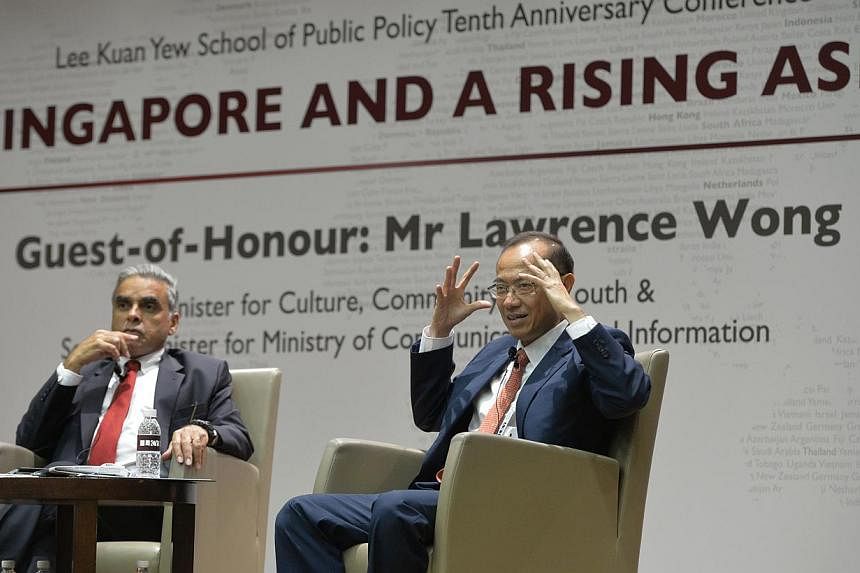SINGAPORE - The world is going through a period of transition in which hierarchies are being eroded and relationships are being called into question, changes that are plunging institutions into crisis around the world.
But cities such as Singapore and Hong Kong, being smaller, are well placed to make the changes needed to adjust to the new world order that will emerge, said Singapore's former foreign minister George Yeo.
Mr Yeo made these observations on Friday, in a rare public speech at the Lee Kuan Yew School of Public Policy, where he is a visiting scholar.
He was among several speakers speaking at various plenary sessions at the school's 10th anniversary conference on the theme: Singapore and a rising Asia.
Casting his eye on recent developments, he assessed the world to be in a period of momentous change, brought on by the digital revolution.
He said: "This transition is a big one, almost as dramatic as when human society shifted from a nomadic way of life to settled agricultural society, (and) settled agricultural society in the feudal world (to an) industrialised (society).
"The transition will not be easy because as in all such transitions it has to take place at all levels of geopolitics, of geoeconomics, religious responses, family structures, extended tribal networks. All come under the same challenge. No one is spared."
But to survive, and avoid falling into chaos, people would have to recognise that the big shifts are sparked by social media and information technology, and adjust accordingly, he said.
For those hoping to make the change, Mr Yeo offered two principles: one, demassification and realising that leaders can no longer dictate from on high and two, learning from one another, especially the young.
Citing his own experience, Mr Yeo said he has been learning from his colleagues at Kerry Logistics, which he chairs, since leaving politics in 2011.
"You have to depend on others. And so I go around and I play the student, I ask questions, I ask for help. I ask how I can be helpful...You create an energy field where there are multiple nodes of activity and you yourself constitutes only one node, hopefully a node which will grow in importance," he said.
He noted, though, that bigger institutions may find it more difficult to "dismantle it's core architecture to adjust to the new reality.''
"It is easier if you are smaller,'' he said, citing cities such as Hong Kong and Singapore which can make the change more easily because they have "low inertia."
He added that Singapore should aspire to be what he called a "free city", although it is one in many ways.
"In medieval times, the future was first to be discerned in the free cities. So the future, with all its uncertainties, is perhaps easiest to be discerned in the free cities of today, and Singapore should aspire to be one such free city," he said.


